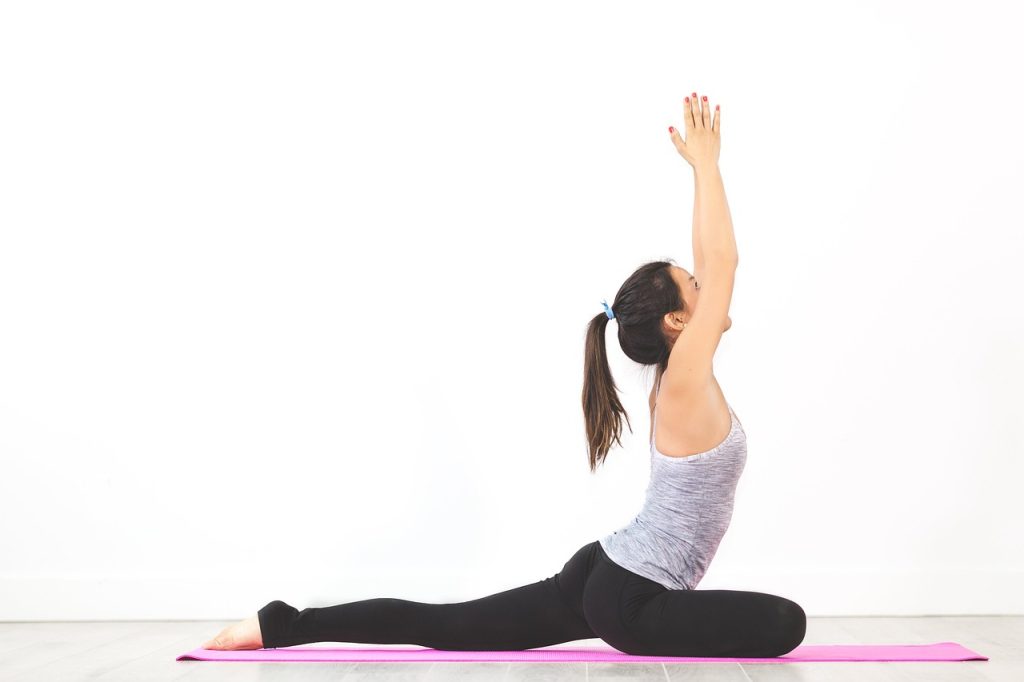Yoga is an incredible activity with benefits extending from improved flexibility to reduced stress. And while yoga is not the highest calorie-burning workout, it can be an incredibly effective tool for weight loss when combined with a healthy diet. The mindfulness, self-care, and physique improvements that develop through regular yoga all help support sustainable, long-term weight management.
Table of Contents
You may also want to know: How to Start a Yoga Practice
Calorie Burn from Yoga
To lose one pound of fat, you must burn 3500 calories through activity or reduced caloric intake. While exact calories burned vary widely based on the style and intensity of yoga, here are some estimates:
- Restorative/gentle yoga: 180 calories per hour
- Hatha yoga: 250 calories per hour
- Vinyasa yoga: 300 calories per hour
- Power yoga: 350-400 calories per hour
- Hot yoga (Bikram): 400-600 calories per hour
This compares to about 300 calories per hour with walking and 500-800 calories with running or aerobics. While yoga burns fewer calories than intense cardio, it provides many other benefits. And when done regularly, yoga’s calorie burn adds up.

Building Muscle with Yoga
Unlike cardio, yoga builds lean muscle mass. Having more muscle increases resting metabolism, meaning you burn more calories throughout the day. Different yoga poses strengthen diverse muscle groups in the arms, core, back, hips, and legs. Holding poses like planks, chaturanga, and down dog involves using your own body weight as resistance to build muscle. The results will be gradual but noticeable.
Yoga’s Impact on Weight Loss
Beyond just calories burned in class, yoga helps weight loss in these key ways:
- Reduces stress levels which impede weight loss due to elevated cortisol. Yoga lowers cortisol.
- Builds awareness of hunger cues and mindful eating habits. This results in less stress and emotional eating.
- Improves digestion which optimizes caloric absorption from food. Twisting poses massage internal organs.
- Balances hormones that influence metabolism and hunger signals. Inverted poses and breathwork benefit the thyroid, pituitary, and adrenal glands.
- Improves sleep which is vital for fat-burning and decreasing cravings. Yoga lowers cortisol and relaxes the nervous system.
- Increases blood flow and releases toxins that hinder fat loss. Yoga tones the circulatory system.
Measure your results from yoga through metrics like inches lost, clothing loosening and increased feelings of strength and energy. The scale may not show huge drops but true body composition changes will happen.

How Yoga Complements Weight Loss Efforts
Any comprehensive weight loss plan includes four key components: exercise, nutrition, sleep, and mental health support. Here is how yoga powerfully complements additional efforts:
- Food journaling or nutrition tracking apps help raised awareness from yoga translate into healthier eating habits.
- A cardio and strength training regimen maximizes caloric burn. Yoga on rest days aids in muscle recovery.
- Improved sleep from yoga helps sustain energy for additional workouts and adherence to the plan.
- Yoga relieves depression, anxiety, and emotional eating patterns which sabotage weight loss.
Practicing yoga gives you the energy and mental clarity to cook better, make more conscious meal choices, exercise smarter, and cope with the challenges of changing old habits. Weight loss is greatly enhanced when combining yoga with dietary changes and other healthy lifestyle shifts.

Creating a Yoga Routine for Weight Loss
Tailoring your yoga practice to help shed unwanted pounds could include:
- Choosing flow styles like Vinyasa, Power Yoga or Bikram to keep your heart rate elevated. Increase stamina over time.
- Focusing on yoga postures that engage the core and large lower body muscles. Boat, chair, warrior and balancing poses build strength.
- Adding cardio intervals like jogging between yoga poses or sequences to boost caloric burn.
- Practicing yoga 5-6 days per week to compound benefits but allow rest and muscle recovery.
- Complementing yoga with weight/resistance training 2-3 days per week to build metabolism-boosting muscle.
- Eating clean, nourishing foods and tracking intake to create a caloric deficit for weight loss.
For variation, take upbeat yoga classes some days but also practice calming yin or restorative yoga which reduces cortisol. Check with teachers about modifications if needed. Be patient and celebrate small milestones like holding a pose longer or perfecting proper form. Consistency is key.

Yoga Poses to Target Weight Loss
Here are some of the best yoga poses to help you lose weight:
- Plank – Strengthens core and upper body using body weight. Can progress to single-leg version.
- Warrior II – Works legs, glutes, arms, shoulders, and back through dynamic lunging.
- Crescent Lunge – Engages leg muscles and challenges balance and stability.
- Boat Pose – Intensely strengthens core and leg muscles. Modify with bent knees if needed.
- Chair Pose – Works inner thighs and butt. Improves coordination.
- Bridge Pose – Targets glutes, hamstrings, and back muscles. Can elevate for a greater challenge.
- Four-Limbed Staff Pose – Similar to plank and challenges numerous muscle groups as a foundational pose.
- Triangle Pose – Stretches and strengthens multiple parts of the body from legs to neck.
- Tree Pose – Requires balance, leg strength, and focus to improve mind-body connection.
Combine these poses into energizing sequences flowed together through breath. Move through several cycles aiming for 60-90 seconds per pose. Let yoga open your body and mind for positive change.

Tips for Managing Your Weight with Yoga Long-Term
Making yoga a lifelong practice capable of keeping weight off involves:
- Remaining flexible and open to trying new yoga studios, videos, classes, and teachers to prevent boredom. Variety is key.
- Allowing modifications as needed. Scale back poses during injuries or high-stress periods to avoid losing your routine.
- Not just doing poses but fully embracing yoga’s mindfulness principles and applying them to eating, self-care, and reducing anxiety.
- Setting realistic goals like attending yoga 3x per week or learning 5 new poses each month to keep motivated.
- Retaining the perspective that yoga is about more than just weight loss – it develops self-acceptance and vibrant health.
- Balancing yoga with other enjoyable physical activities for cardio, strength, and functional fitness. Build an exercise habit.
- Using yoga blocks, straps, and blankets to help get proper form and avoid discomfort or strain.
Make your yoga practice a personal journey, not a chore. Savor the heightened body and emotional awareness that yoga cultivates. Weight loss will follow naturally as part of holistic well-being.

Related Links:




